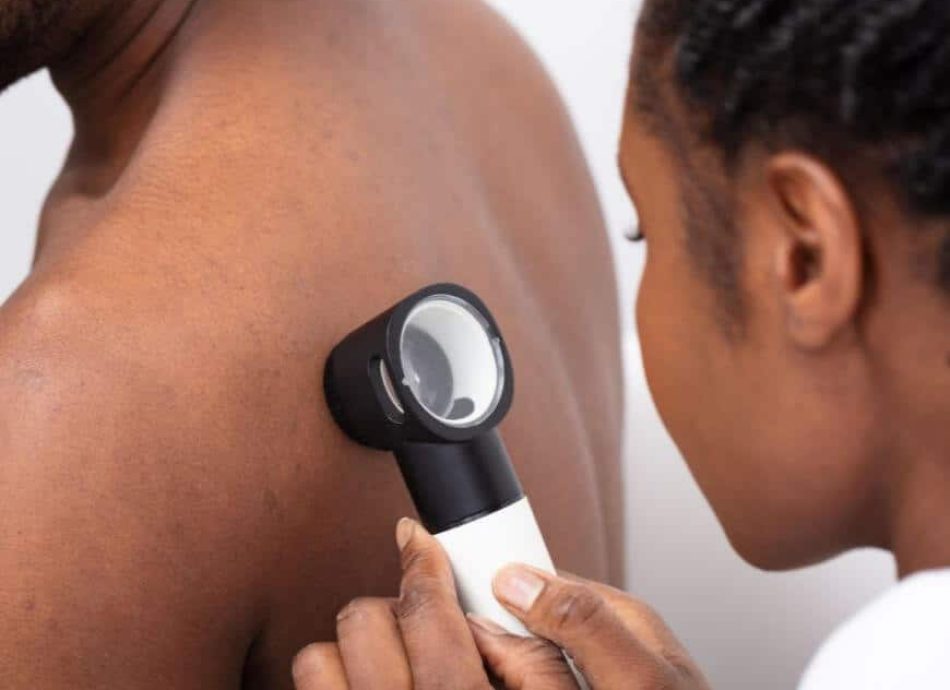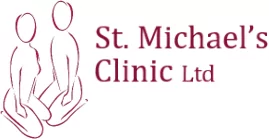Award winning dermatology service, with over 20 years of experience
Short waiting lists, on some occasions offering same week appointments
Safe environment, in Care Quality Commission approved facilities
Conditions
PATCH TESTING IN SHREWSBURY
Patch testing is a specialist procedure carried out to find out whether your skin condition is caused or aggravated by an allergy to substances which have come into contact with your skin. This is called contact allergy which is a ‘Type 4 allergy’. Substances that cause an allergic reaction are called allergens and they can be found both at home and work.
Patch testing is arranged when appropriate after an initial consultation with one of our specialist dermatologists. Our patch testing service is run by consultant dermatologist Dr Niki Hart.
Patch testing is not used to investigate food allergy or other ‘Type 1 allergies’ such as to dust, pollen and animals.
WHAT CAUSES ALLERGIES?
Allergies develop when the body’s immune system reacts to a substance as though it’s harmful. It’s not clear why this happens and there isn’t one definite cause, however, allergies are often placed into categories for risk factors, these are ‘host’ and ‘environmental’
ENVIRONMENTAL FACTORS
In recent years, there has been an increase in the incidence of allergic disorders that are not related to host factors alone. Environmental factors include any allergies that are the result of your surroundings. These can include, but are not limited to:
- Pollen
- Environmental Pollution
- Certain chemicals/ substances
- Medications
- Dust
HOST FACTORS
The host factors include anything that might increase the risk of developing an allergy, these include:
- Heredity/ Genetics
- Sex
- Race
- Age
HOW DO PATCH TESTS WORK?
You will need to attend for appointments on Monday, Wednesday and Friday.
On your first visit we will review your history and discuss your work and social activities, before choosing appropriate allergens to test. A nurse will then apply several small discs containing the substances to be tested and attach the ‘patch’ to your back using hypoallergenic tape.
The substances will remain taped in place for 48hrs or until your second visit to the nurse, when they will be removed, and any reactions are noted. Additional patches may be applied at this visit
On the third visit your back will be examined by your consultant dermatologist who will discuss any reactions with you.
The skin patches are applied to your back for practical reasons. It is the biggest surface area of skin and the patches are more likely to stay in contact there, but we do occasionally use upper arms.
At St Michael’s Clinic, Shrewsbury, we deliver both NHS and private patch testing services. We have a comprehensive range of allergens available. Some allergens are used in virtually every patient whilst some are selected depending upon the nature of your skin complaint. Additional series of allergens include:
- Rubber chemicals
- Textile and leather dyes
- Cutting oils
- Cosmetic and hairdressing ingredients
- Epoxy resins
- Medicaments such as topical steroids and antiseptics
- Fragrances and essential oils
- Plants
- Dental materials
- Metals
- Sunscreens
- Plastic materials
- Shoe components
- Glues
FREQUENTLY ASKED QUESTIONS
WHAT ARE THE SIDE-EFFECTSOF PATCH TESTING
If you have a positive allergy, the biggest side-effect people suffer with will be itching. Sometimes you can also get an irritant reaction under the tape and this is also itchy.
- Occasionally reactions can become red, swollen or even blistered
- In strong positive allergies persistent reactions may occur which take a few weeks to disappear
- Eczema may flare up in the presence of positive patch test
- Inflammation can cause pigment change which may lighten or darken and sometimes lasts for a few months but is rarely permanent
IS THERE ANYONE WHO CAN'T HAVE PATCH TESTING?
Patch testing is not advisable if you:
• are pregnant or breastfeeding
• have extensive eczema on your back
• have been exposed to the sun or have used a sun bed over the previous 2 weeks
• have recently applied an artificial tan
• are using moderate or high dose oral steroids
It is not possible to apply test patches if the skin on your back is scratched, sun burnt, has a rash or excessive hair growth. If you do have excessive hair on your back, please have the area shaved before your appointment.
Avoid using antihistamines for 48 hours before and during the patch testing period as this would reduce any visible reaction to the allergens.
REQUEST A CALL BACK
Please fill in this form and one of our team will give you a call back to arrange a consultation with one of our expert dermatologists.

HEAR FROM OUR PATIENTS
WHY GET YOUR ALLERGIES TESTED AT ST. MICHAEL'S CLINIC?
Here at St. Michael’s Clinic, Shrewsbury’s leading private skin and laser treatment clinic, our experts are specialists in all aspects of dermatology, skin cancer, anti-ageing and beauty treatments. We are able to offer NHS patients a consultant led dermatology service from our sites in Shrewsbury and Much Wenlock.
St. Michael’s Clinic is regulated by the Care Quality Commission, ensuring the best level of treatment is provided to you in a safe environment. We are part of the Dermatology Partnership, a leading group of dermatology clinics, defined by clinical excellence and focusing on leading dermatological care.
latest INSIGHTS AND ADVICE

A Comprehensive Resource For Dealing with Rosacea: Your Guide For Rosacea Awareness Month 2024
Rosacea Awareness Month is celebrated annually in April, an opportune moment to shine a spotlight on this commonly experienced but often misunderstood skin disorder. Anyone grappling with rosacea worldwide – you’re not standing alone. Rosacea is a long-term inflammation disease that primarily causes facial redness

Winter Skin Care Tips: Expert Advice for a Radiant Complexion
Table of Contents As the seasons change, so should your skincare routine. Winter skin care is more than just a beauty routine; it’s about maintaining skin health and resilience in challenging environmental conditions. Navigating the common challenges of winter—dryness, dullness, and sensitivity—requires an adaptive approach

The common types of skin cancer explained
The common types of skin cancer explained Skin cancer is the most common form of cancer in the UK, and is broken down into two main types, melanoma skin cancer and non-melanoma skin cancer. According to Cancer Research, there are over 410 cases of non-melanoma




